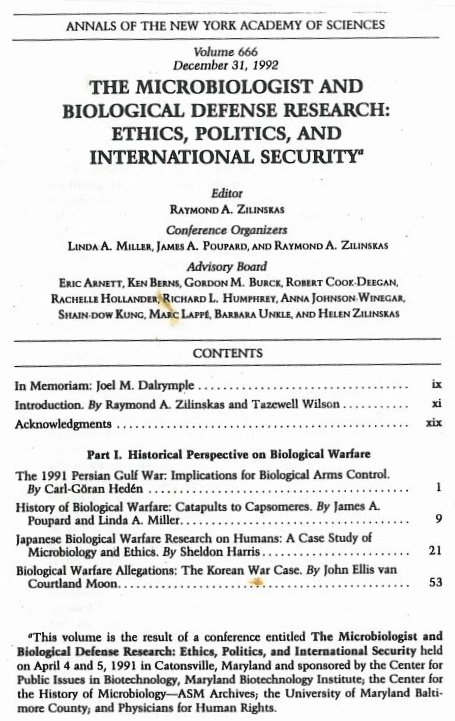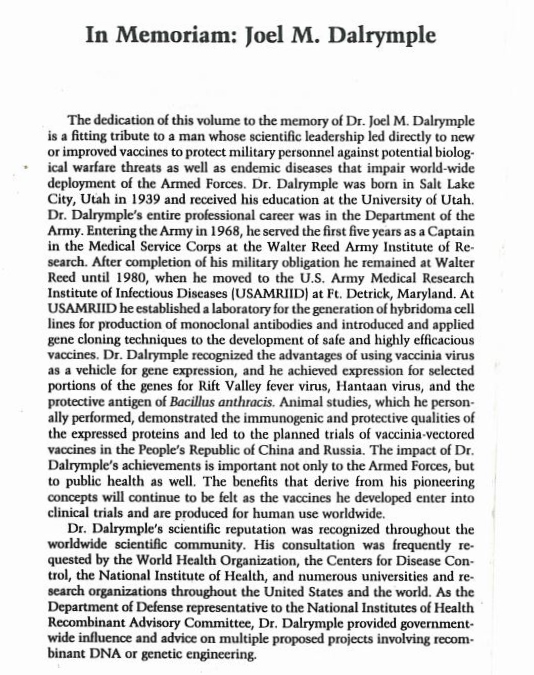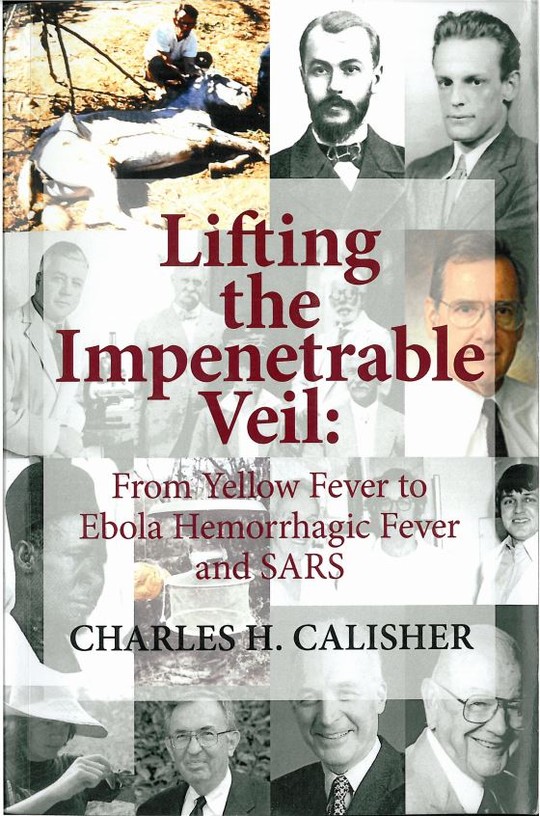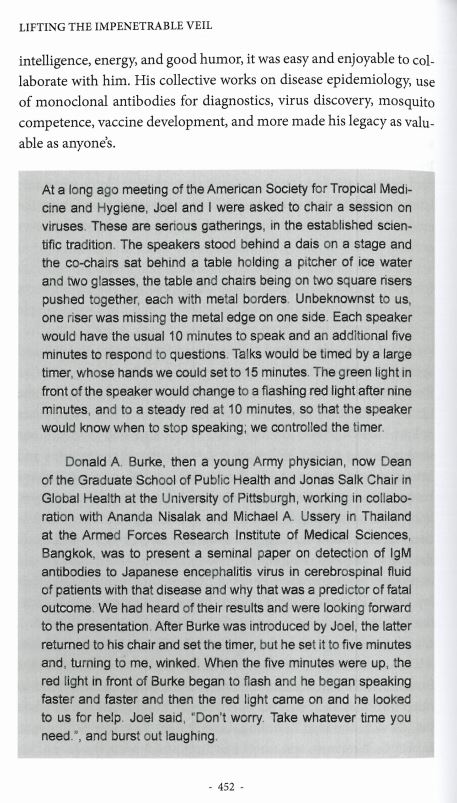
The Frederick Post July 21, 1992. Dr. Joel McKeith Dalrymple, 53, an internationally known researcher and most recently a senior researcher at Fort Detrick, died early Sunday morning July 19 of kidney cancer at Frederick Memorial Hospital. Dr. Darlyrmple, of Myersville, was the husband of Lonnie Wheat Dalrymple.
Born June 18, 1939 in Salt Lake City, Utah, he was the son of Carmen Knutti Dalrymple of Montpelier, Idaho, and the late Grove McKeith Dalrymple. Surviving in addition to his wife and his mother are two sons, Brian McKeith Dalrymple and Michael John Dalrymple, both of Meyersville; and a sister, Diane Guinn, of Mesa, Ariz.
There will be no public viewing. Friends will gather at 2 p.m. Sunday July 26 at the conference room at USAMRIID at Fort Detrick. In lieu of flowers, memorial contributions may be made to the Joel M. Dalrymple Memorial Fund, Myersville Bank, P.O. Box 89, Meyersfille, MD, 21773. Stauffer Funeral Home, 1621 Opossumtown Pike, Frederick, is in charge of arrangements.
Dr. Darlymple, who had a Ph.D. from the University of Utah, devoted his career to the development of vaccines to prevent viral diseases. He had been associated with the U.S. Army as an officer and a civilian for 24 years. He was a captain in the U.S. Army Medical Service and a civilian scientist, both at the Walter Reed Army Medical Research Institute of Infectious Diseases (USAMRIID) at Fort Detrick. He had been a researcher at Fort Detrick since 1985.
Dr. Dalrymple developed new cell culture techniques for in-depth studies on Hantaan viruses, which cause Korean hemorrhagic fever. Hemorrhagic fevers, which can be fatal, are characterized by hemorrhages throughout the body, kidney failure and shock. A vaccine for Korean hemorrhagic fever, a direct result of Dr. Dalrymple's research, will be tested on the first large-scale field trials soon. The trials will be conducted hundreds or even thousands of volunteers in the People's Republic of China and in Russia.
Dr. Dalrymple introduced gene cloning techniques at USAMRIID in 1983. His efforts allowed researchers to study viral diseases on a molucular and genetic level, paving the way for vaccine development. In addition to the Hantaan viruses found throughout the world, he studied Rift Valley fever virus, found primarily in the Middle East and Africa; the Langat virus, closely related to the virus that causes tick-borne encephalitis; and bacteria, such as those that cause botulism and anthrax.
Dr. Dalrymple also helped set up the first USAMRIID laboratory for the production of hybridoma cell lines and monoclonal antibodies for use in vaccine development. His techniques and methods are still used. His studies led directly to the first molecular vaccines to be tested at USAMRIID, including vaccines for hemorrhagic fevers and Rift Valley fever. He also developed a smallpox vaccine, which may be more effective than the existing smallpox vaccine. The first clinical studies on the new vaccine will begin during the next few months.
As Department of Defense representative to the National Institutes of Health Recombinant Advisory Committee, Dr. Dalrymple advised government leaders on all proposed federally funded projects involving recombinant DNA or genetic engineering.
His efforts on behalf of USAMRIID an the U.S. Army Medical Research and Development Command to establish cooperation among the international research community in work involving infectious diseases has led to formal research agreements between the United States and Japan, Korea, China, Russia, Finland and Sweden.
An innovative educator, Dr. Dalrymple held adjunct faculty positions or associate professorships at the Johns Hopkins University School of Hygiene and Public Health in Baltimore, the University of Maryland School of Hygiene and Public Health in Baltimore, The American University in Washington, D.C., Cornell University Medical School in Ithaca, N.Y., Hood College in Frederick, and the Uniformed Services University of the Health Sciences in Washington, D.C.
He was a consultant to the World Health Organization on hemorrhagic fever and tropical disease epidemiology, chairman of the American Committee on Arthropod-borne Viruses and a member of the Executive Council and of the Viral Diseases Panel of the U.S.-Japan Cooperative Medical Sciences Program. A member of numerous professional and scientific organizations, Dr. Dalrymple received more than 30 national and international honors and awards, and with two colleagues, holds a U.S. patent for genetic encoding.
Dr. Dalrymple wrote more than 80 scientific journal articles, 40 abstracts and made major contributions to 10 books, encyclopedias and reviews on viruses and viral diseases. The impact of his achievements is important not only to the U.S. armed forces, but it is important to public health as well. The benefits that come from his pioneering work in preventative medicine research are known throughout the international scientific community and will continue to be felt as the vaccines he developed enter intot clinical trials or are produced for use in humans worldwide.







